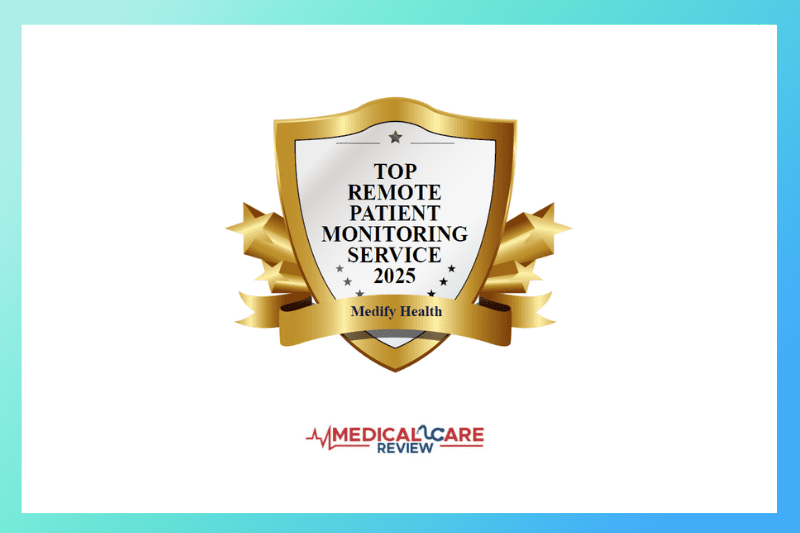
Medicare Open Enrollment runs from October 15 – December 7 and allows patients to join, switch, or drop Medicare health and drug plans. Patients may add, change, or drop coverage at this time which introduces both opportunities and risks to your medical practice. Fortunately, Chronic Care Management (CCM) can give physicians the tool they need to proactively engage patients during this volatile time.
Medicare Open Enrollment Starts October 15
Is your medical practice proactively addressing Medicare Open Enrollment this year? If not, it should be. Patients consider insurance coverage to be one of the most important factors in their decision to engage with a physician or choose a medical service, so any change to their coverage can make a big difference to your practice’s success.
Here are key facts about Medicare Open Enrollment:
- It occurs every year from October 15 through December 7.
- During this seven-week window, Medicare patients can review, join, switch, or drop health and prescription drug plans.
- Any changes made during Medicare Open Enrollment take effect on January 1 of the following year.
For medical practices, Medicare Open Enrollment means higher volumes of patient questions, added administrative responsibilities, and uncertainty about patient coverage.
Medicare Open Enrollment also creates a valuable opportunity for practices to re-engage patients who are reconsidering their health care coverage and overall care needs.
Open Enrollment Benefits and Risks for Practices
Benefits of Medicare Open Enrollment
-
Patient Engagement Opportunities: Patients are actively evaluating coverage, which makes this an ideal time for practices to educate them about services such as Remote Patient Monitoring (RPM) and Chronic Care Management (CCM).
-
Stronger Patient Retention: Proactively guiding patients toward Medicare plans that keep your practice in-network helps ensure continuity of care.
-
Revenue Optimization: Practices can benefit when patients select plans that support reimbursement for CCM and RPM services.
Risks of Medicare Open Enrollment
-
Potential Loss of Patients: Patients who enroll in out-of-network Medicare Advantage plans may no longer be able to receive care from your practice.
-
Greater Administrative Burden: Insurance verifications, documentation updates, and new coverage questions can overwhelm staff capacity.
-
Disruptions in Care Continuity: Formulary changes, preauthorization rules, or coverage modifications can lead to delays and confusion for patients.
How Chronic Care Management (CCM) Supports Practices During Medicare Open Enrollment
Chronic Care Management (CCM) services are designed to provide patients with chronic conditions ongoing engagement between office visits. Since CCM services include patient education, communication facilitation, and scheduling services, they can be especially helpful for guiding patients through the often-confusing Open Enrollment period.
Key advantages of CCM include:
-
Proactive Patient Identification: Eligible patients are identified in advance, ensuring consistent outreach even as insurance coverage shifts.
-
Effective Patient Education: Patients learn the benefits of ongoing CCM support at the very time they are evaluating health coverage choices.
-
Smooth Care Transitions: Care plans, medication lists, and follow-up schedules can be updated seamlessly to prevent gaps during plan changes.
-
Ongoing Support for High-Risk Patients: Continuous non-face-to-face care provides a safety net for vulnerable patients navigating complex coverage updates.
-
Reliable Revenue for Practices: Reimbursement for CCM services provides steady income, even if in-person visit volume fluctuates during the open enrollment period.
How Medify Helps Practices Specifically During Medicare Open Enrollment
Medify’s Chronic Care Management program is designed to make Medicare Open Enrollment easier for both practices and patients.
-
Educating Patients About Services: Medify health coaches clearly explain practice offerings and Medicare coverage so patients understand their options.
-
Assisting With Scheduling: Preventive care and follow-up visits remain on track with proactive scheduling support.
-
Simplifying Communication: Medify serves as a communication bridge between patients and practices, answering routine questions and escalating complex issues only when necessary.
By offering these supports, Medify reduces staff workload while strengthening patient engagement and satisfaction.
Important Tip to Increase Patient Encounters
All of your patients are receiving mailers or other reminders (for example, at work) about healthcare coverage options and associated deadlines. Since healthcare coverage is top-of-mind, it often spurs patients to meet other deadlines. For example, many patients try to fit in procedures before their annual coverage ends at New Year’s.
If your appointment calendar is booked solid, you miss out on patients who need appointments during this busy period. In fact, your patients may switch to another provider who has availability.
Tip: encourage patients to book appointments before the end-of-year surge in demand. When your health coaches contact patients, educate them that it’s best to schedule appointments in non-peak periods like September for convenient openings and enough buffer to allow for follow-up appointments as needed before the year ends.
Conclusion
Medicare Open Enrollment is both a challenge and an opportunity for medical practices.
Practices that pair proactive communication with Chronic Care Management are more likely to retain patients, avoid disruptions in care, and maintain revenue stability.
Medify helps medical practices succeed during Medicare Open Enrollment by educating patients, supporting scheduling, and facilitating communication.
Learn more about how Medify supports practices during Medicare Open Enrollment. Contact us today.



